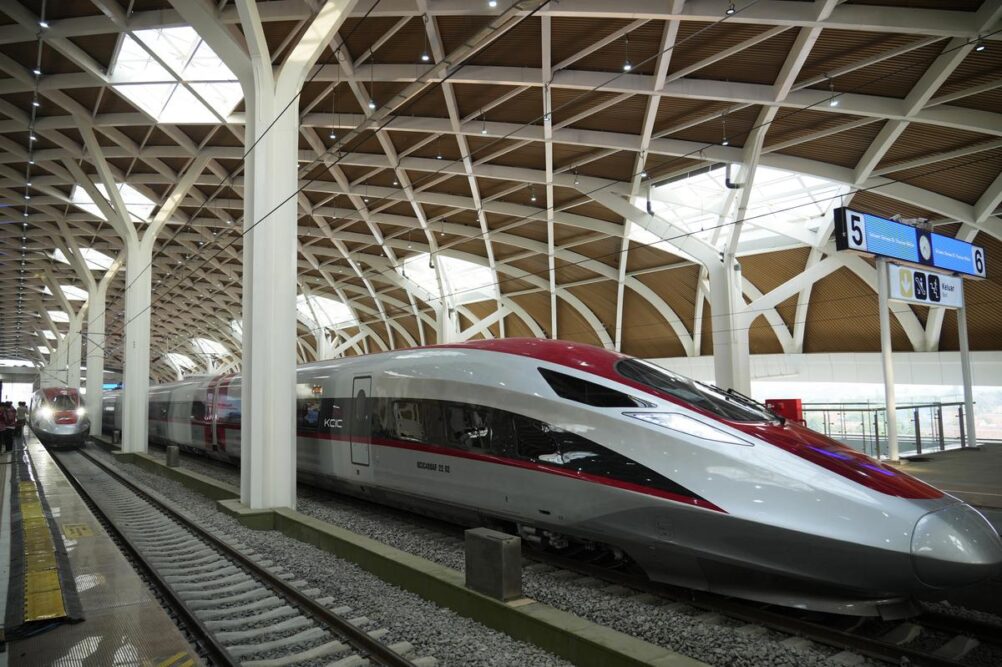Indonesian President Joko Widodo officially inaugurated Southeast Asia’s first high-speed railway on Monday, marking a significant milestone for the nation’s infrastructure development. The ambitious project, known as the “Whoosh” high-speed railway, is a key component of China’s Belt and Road Initiative and is poised to dramatically reduce travel times between two vital Indonesian cities.
A Multibillion-Dollar Project with Chinese Funding
With an estimated cost of $7.3 billion, this monumental infrastructure project was predominantly funded by China. It was brought to fruition through the joint efforts of PT Kereta Cepat Indonesia-China (PT KCIC), a collaboration between an Indonesian consortium comprising four state-owned companies and China Railway International Co. Ltd.
Revolutionizing Transportation Between Jakarta and Bandung
The high-speed railway connects the sprawling metropolis of Jakarta with Bandung, the bustling capital of West Java province. This transformational rail link is set to reduce the arduous three-hour commute between these cities to a mere 40 minutes, greatly enhancing regional connectivity and facilitating economic growth.
An Environmentally Friendly Innovation
One of the notable features of this high-speed railway is its commitment to environmental sustainability. By utilizing electrical energy, it is anticipated that the railway will contribute to a significant reduction in carbon emissions, aligning with global efforts to combat climate change.
Decoding “Whoosh”: A Commitment to Efficiency and Reliability
“Whoosh”,’ which stands for ‘Waktu Hemat, Operasi Optimal, Sistem Handal‘ in the Indonesian language, translates to ‘timesaving, optimal operation, reliable system.’ This name reflects the project’s commitment to efficiency and reliability.
A Milestone in Indonesian Transportation
President Widodo emphasized the importance of the Jakarta-Bandung high-speed train, describing it as a symbol of modernization in mass transportation that is both efficient and eco-friendly. He noted that embracing innovative endeavors provides opportunities for learning, enhances human resources, and promotes national independence.
Overcoming Challenges
Indonesia embarked on this ambitious project in 2016, originally expecting it to begin operations in 2019. However, a series of challenges, including disputes over land acquisition, environmental concerns, and the global COVID-19 pandemic, caused significant delays. Additionally, the initial estimated cost of 66.7 trillion rupiah ($4.3 billion) ultimately swelled to 113 trillion rupiah ($7.3 billion).
Ticket Prices and Feeder Train
As of the inauguration date, ticket prices for the high-speed train had not been finalized, but PT KCIC estimated one-way fares ranging from 250,000 rupiah ($16) for second-class seats to 350,000 rupiah ($22.60) for VIP seats. Passengers heading to downtown Bandung will need to take a feeder train from the Padalarang station, adding an extra 20 minutes to their journey at an estimated cost of about 50,000 rupiah ($3.20).
A Part of a Larger Vision
The Jakarta-Bandung high-speed railway is part of a broader plan to develop a 750-kilometer (466-mile) high-speed train line across four provinces on Java, Indonesia’s main island. This network is envisioned to extend to Surabaya, the country’s second-largest city.




 Which Lake is known as the Jewel of Udai...
Which Lake is known as the Jewel of Udai...
 Which is the Largest Banana Producing St...
Which is the Largest Banana Producing St...
 Shashi Tharoor Conferred Honorary D.Litt...
Shashi Tharoor Conferred Honorary D.Litt...








